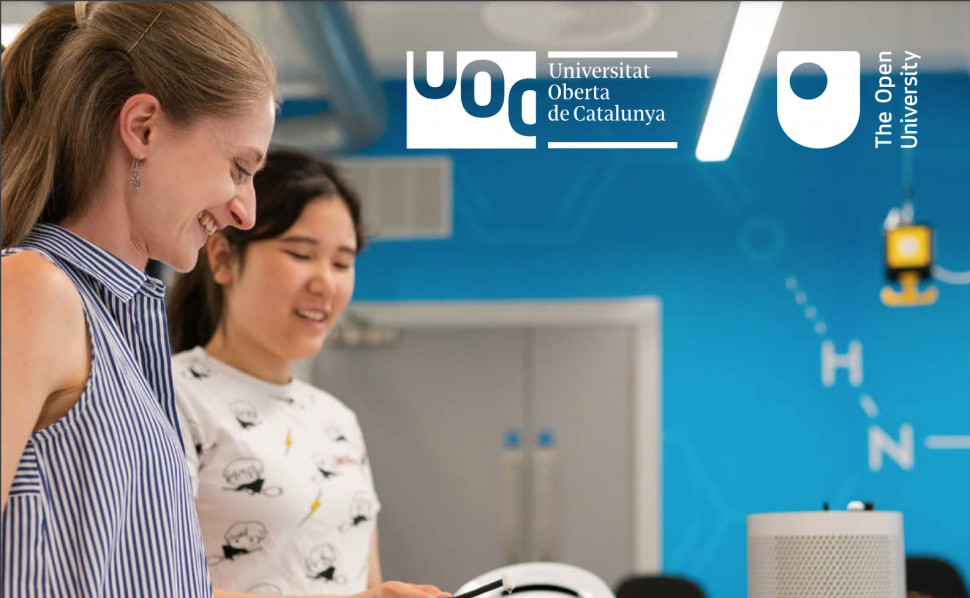Happy Anniversary: 2022 Innovating Pedagogy Report

The 10th edition of the annual innovating pedagogy report was released in July 2022. A little belated, I am finally getting in my review of the anniversary edition. Each year, the report features 10 distinct pedagogies that are likely going to impact teaching and learning practices. Some editions indicate a time frame and impact level (low, medium, high), others give a broader perspective. All, feature excellent writing and research about pedagogical innovations that are already in currency but have not yet had a profound influence on education.
As Grainne Conole put it:
“I think the OU’s innovating pedagogy reports are brilliant and the authors are all highly respected researchers in the field, like Mr Mobile – Mike Sharples. I think the reports are very insightful and are a must read for anyone in the EdTech field” ((Conole, 2018)
Report Series
Professor Mike Sharples had the original idea for a pedagogy-focused trend report series and led the team who worked on the first 6 editions. In 2016, I had the pleasure to interview Mike Sharples for AACE Review on the behind the scene’s work. I asked him to describe the best and the worst parts of compiling and publishing a trend report:
“The best parts are coming up with the long list of ideas (some of them completely off the wall) and then having the enjoyable meeting to whittle them down to ten, seeing the final version in print, and getting the first feedback from colleagues. The worst parts are the few responses we get that say “these pedagogies aren’t innovative at all”, or worse, “you haven’t referenced this groundbreaking work”. That’s one reason why we set up a website for the report and invite constructive comments”. (Sharples, 2016)
In 2019, Dr. Rebecca Ferguson from the Institute of Educational Technology at The Open University (UK), took over the role of lead author and coordinator of the report. In an interview, she described the impact the team is aiming for:
“Educators around the world are always having good ideas about how to develop teaching and learning further, I see our role as amplifying the best ideas that we encounter, explaining why they work, and how they can be put into practice”. (Ferguson, 2019)
The anniversary edition was produced by researchers in the Open University’s Institute of Educational Technology in collaboration with colleagues from the Open University of Catalonia. The 2022 report breaks new ground by tackling the tall order of organizing the innovations from all reports (2012-2022) into one thematic classification.
- Connecting with others
- Emotions
- Justice
- Resource learning
- New settings for learning
- Frameworks to support thinking and learning
- Learning in an open world
- Learning in daily life
- Making learning personal
- Engaging learners
Overview of 2022 Trends
The following ten trends were specifically selected for the 2022 edition.
- Hybrid models give students the option to alternate between attending classroom sessions or participating synchronously and/or asynchronously online.
- Dual learning sees the value of close synchronization between classroom training and professional practices.
- Microcredentials vary greatly in length, level, scale and scope, there is no one-size-fits-all pedagogy that is suitable for all.
- The pedagogy of autonomy is associated with two ideas, namely that learning is a profession and that learners are professionals.
- Watch parties are a way for learners to engage collectively online with a specific video or broadcast.
- ‘Edu-influencers’ (education influencers) provide freely available video and other content to their followers beyond formal and accredited education programmes, and mostly work outside educational institutions.
- The concept of ‘pedagogies of the home’ differs from ‘home schooling’, as it seeks to investigate the types of informal teaching and learning practices that occur in a home environment, as well as culturally specific ways of learning, such as through the local community.
- Pedagogy of discomfort is a process of self-examination that requires students to critically engage with their ideological traditions and ways of thinking about issues such as racism, oppression and social injustice.
- Wellbeing education supports and promotes good mental health for learners.
- Walk-and-talk has been used in several contexts in education, namely to support psychological and physical wellbeing; in research as a teaching method; and in informal learning.
Summary
Many readers have followed this pedagogical trend report for a decade now. Personally, what I most appreciate is that the publication doesn’t cater to one particular audience. Since 2015, it is authored every year together with a different partner institution, which practically guarantees to surprise you and take you out of your bubble. Each edition has featured trends I found tremendously valuable and interesting as well as innovations I absolutely did not care for but was pushed to think about or at least acknowledge.
Kukulska-Hulme, A., Bossu, C., Charitonos, K., Coughlan, T., Ferguson, R., FitzGerald, E., Gaved, M., Guitert, M., Herodotou, C., Maina, M., Prieto-Blázquez, J., Rienties, B., Sangrà, A., Sargent, J., Scanlon, E., Whitelock, D. (2022). Innovating Pedagogy 2022: Open University Innovation Report 10. Milton Keynes: The Open University. https://prismic-io.s3.amazonaws.com/ou-iet/5c334004-5f87-41f9-8570-e5db7be8b9dc_innovating-pedagogy-2022.pdf
